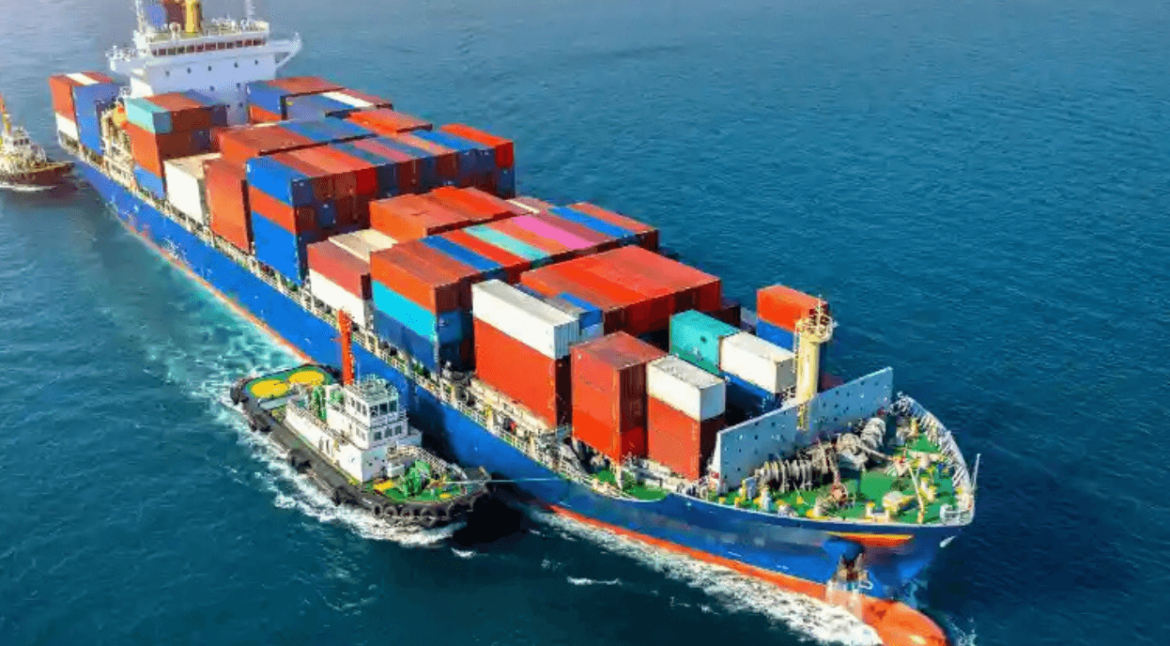The Merchant Navy, often referred to as the “lifeline of international trade,” plays a crucial role in the global economy. It is responsible for the transportation of goods, raw materials, and resources across the world’s seas and oceans. This article explores the importance of the Merchant Navy, its role in facilitating global trade, and the career opportunities it provides.
Importance of the Merchant Navy
1. Global Trade Backbone: Approximately 90% of world trade relies on maritime transportation. The Merchant Navy enables the movement of a diverse array of goods, from essential commodities like food, oil, and natural gas to manufactured goods and technological products. This sector is thus indispensable for sustaining global commerce and economies.
2.Economic Stability and Growth: Nations heavily rely on imports and exports for economic growth, with the Merchant Navy forming the infrastructure that allows for this flow of goods. For example, oil tankers supply energy to nations worldwide, while container ships bring consumer goods to every corner of the planet, supporting industries, retail, and consumer markets.
3.Employment Opportunities: The Merchant Navy offers thousands of job opportunities, employing people from various backgrounds in positions such as deck officers, marine engineers, electro-technical officers, ratings, and hospitality roles. This industry not only provides direct jobs but also supports numerous other industries such as shipping agencies, maritime logistics, port management, and shipbuilding.
4.National Security: A robust Merchant Navy also contributes to a nation’s strategic strength. During wartime or emergencies, merchant vessels can be called upon to support military operations by transporting troops, equipment, and essential supplies. Thus, a strong Merchant Navy is often considered part of a country’s defense and strategic reserve.
5.Environmental Initiatives: The Merchant Navy is increasingly focusing on environmental sustainability by developing cleaner fuel technologies and adopting eco-friendly practices. The International Maritime Organization (IMO) has set ambitious targets for reducing greenhouse gas emissions in the shipping industry, driving innovation and sustainability in the Merchant Navy.
Role of the Merchant Navy
The Merchant Navy fulfills several critical roles that keep international trade and commerce operational. Key roles include:
1.Transportation of Goods: The Merchant Navy transports goods between countries, including essential resources like oil, gas, coal, minerals, agricultural products, and manufactured goods. Ships are specially designed for different cargoes, such as oil tankers, bulk carriers, container ships, and LNG carriers, each optimized to safely transport specific types of cargo.
2.Economic Enabler: By allowing nations to export their resources and import essential commodities, the Merchant Navy facilitates economic growth, trade balances, and improved standards of living. Developing nations, in particular, depend on this network to access global markets and grow their economies.
3.Energy Supply Chain: A large portion of the world’s energy supply, particularly oil and natural gas, is transported by the Merchant Navy. Energy tankers play an essential role in ensuring energy security for countries, enabling them to maintain economic stability and power infrastructure.
4.Support in Emergencies and Relief Efforts: The Merchant Navy often plays a vital role during natural disasters and humanitarian crises, delivering relief supplies, food, medical aid, and emergency personnel to affected regions. This role is crucial, as it enables rapid responses to crises where traditional land-based transportation may be limited.
5.Promotion of International Relations: The Merchant Navy fosters international cooperation by engaging in trade with a diverse array of countries, which in turn encourages peaceful relations and diplomatic ties. Trade agreements and maritime protocols are often a foundation for broader partnerships between nations.
Career Opportunities in the Merchant Navy
The Merchant Navy offers diverse career paths and opportunities for growth, particularly for those interested in a maritime career. Common roles include:
- Deck Officers: Responsible for navigation, safety, and communication, deck officers ensure the vessel’s safe passage and oversee cargo operations.
- Marine Engineers: They maintain and operate the engine room and associated mechanical systems, ensuring the vessel remains operational.
- Electro-Technical Officers (ETOs): ETOs handle all electrical and electronic equipment on board, including power generation and distribution systems.
- Ratings: Supporting roles such as able seamen, oilers, and other crew members provide essential support to both the deck and engine departments.
- Hospitality and Catering: Many merchant vessels, particularly passenger and cruise ships, employ hospitality staff for food and accommodation services.
Challenges and Future of the Merchant Navy
Despite its importance, the Merchant Navy faces challenges, including piracy, environmental concerns, and the need for modernization. Advances in technology, particularly with autonomous ships and greener energy sources, are reshaping the future of the Merchant Navy. The industry is likely to see a greater emphasis on digital skills, advanced navigation systems, and eco-friendly practices.
Conclusion
The Merchant Navy is fundamental to global trade, economic stability, and energy security. Its role in transporting goods across the globe makes it a critical industry, not only for economic reasons but also for strategic and humanitarian purposes. With a promising future that includes innovation and a focus on sustainability, the Merchant Navy will continue to be an essential pillar of the global economy and an attractive career choice for many.

